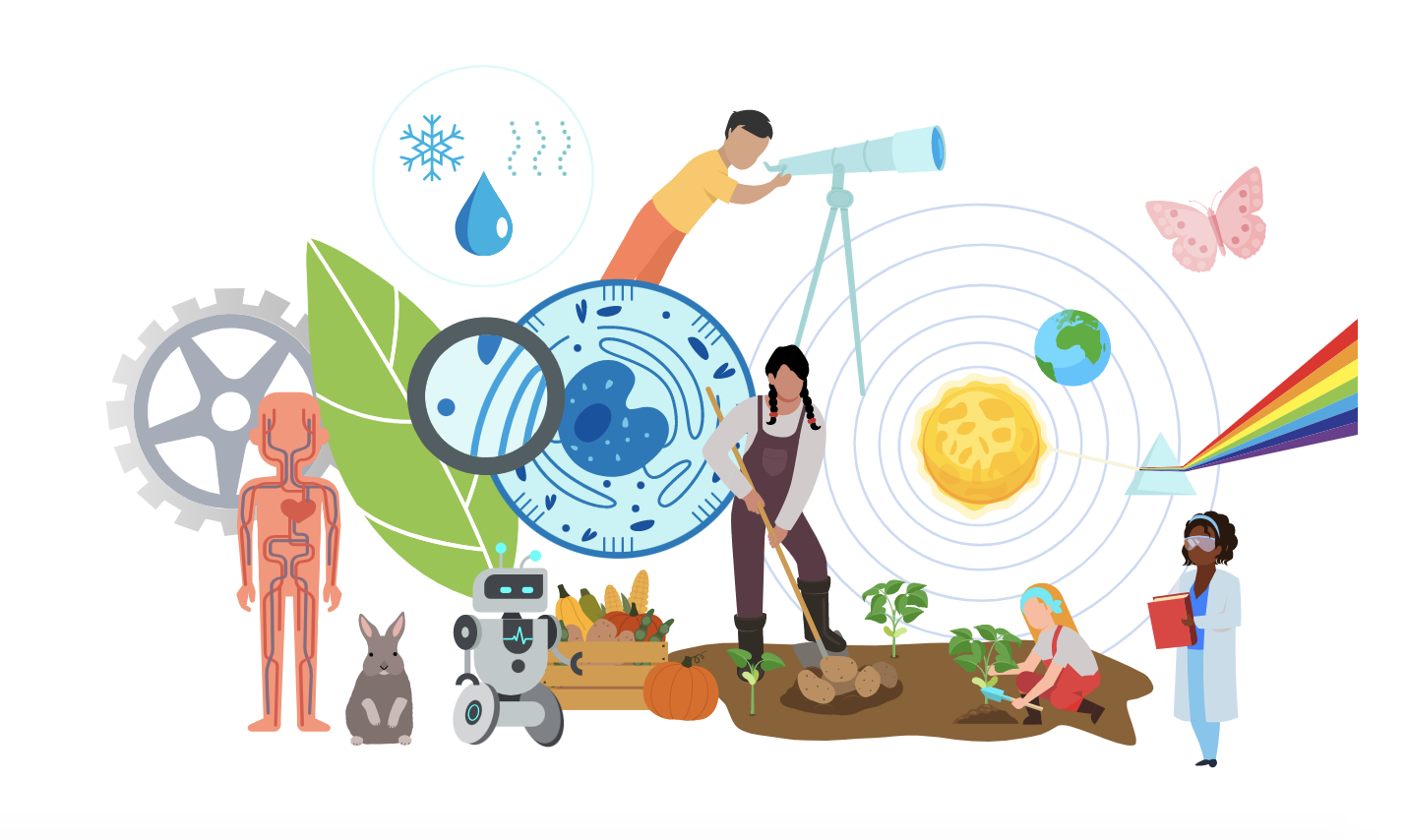Food Literacy included in new Gr. 1-8 Ontario Science and Technology Curriculum
Posted: March 11, 2022
Categories: Edible Education Network / GoodFoodBites / School Food News / Schools
 Thank you to the Ministry of Education for including food literacy in the revised Science and Technology Curriculum for Ontario!
Thank you to the Ministry of Education for including food literacy in the revised Science and Technology Curriculum for Ontario!
On March 8, 2022, Education Minister Stephen Lecce and MPP Daryl Kramp announced that the Ontario government will be introducing a new science and technology curriculum and de-streaming the Grade 9 science course in order to place an emphasis on critical life and job skills. You can view the new curriculum here.
Sustain Ontario is very pleased to see that a number of aspects of food literacy, mainly relating to food systems, have been included in the new required learning expectations. The government’s news release shares:
“For the first time in Ontario history, the revised curriculum includes required learning on real-world connections between science, technology, engineering and mathematics. New expectations include: (…) Food literacy: learning related to food literacy in every grade that empowers students to make decisions that affect physical and mental health, consider local food production, and the scientific processes involved in agriculture.”
The Ministry of Education has shared a summary of key changes made to the Gr. 1-8 Science and Technology curriculum. Those specifically relating to food and agriculture include:
Strand B. Life Systems
Relating Science and Technology to Our Changing World – New expectations:
- Gr. 3 B1.3 assess the benefits and limitations of locally grown food
- Gr. 5 B1.3 explain how food literacy can support decisions that affect physical and mental health
Exploring and Understanding Concepts – New expectations:
- Gr. 3 B2.7 describe various plants used for food, including those grown by First Nations, Métis, and Inuit, and identify local settings where these plants are grown or found
- Gr. 6 B2.8 describe the importance of biodiversity in supporting agriculture, including Indigenous agriculture around the world
- Gr. 7 B2.8 describe how different approaches to agriculture and to harvesting food from the natural environment can impact an ecosystem, and identify strategies that can be used to maintain and/or restore balance to ecosystems
Strand D. Structures and Mechanisms
Exploring and Understanding Concepts – Revised expectations:
- Gr. 8 D2.2 describe the purpose, inputs, and outputs of various systems, including systems related to food processing
Strand E. Earth and Space Systems
Exploring and Understanding Concepts – New expectations:
- Gr. 3 E2.4 explain the process of erosion, including its causes and its impact on soils
- Gr 3 E2.5 identify various strategies used to maintain and improve soil health in Ontario
Food literacy has an integral role to play in young people’s education and health, and we’re excited to see the Ontario curriculum bringing in more elements of food literacy education.
We would like to thank the Food Policy Council of KFL&A for their leadership in advocating for food literacy in the curriculum, as well as MPP Daryl Kramp for championing this work.
In a recent CBC article, New science curriculum with hands-on learning, coding and food literacy gets top marks locally, Andrew Fleet from Growing Chefs! Ontario has explained, “Having it in the science curriculum is going to get students learning about food in a way that isn’t confined to the kitchen. They’ll learn how our food system works, how food affects our environment, the role it plays in climate change, and the major role it has in shaping our culture.”
One day we hope to see food literacy integrated fully into Ontario’s Gr. 1 – 12 curriculum, as detailed in our Policy Brief to inform Bill 216 (the Food Literacy for Students Act). We encourage you to read that Policy Brief to learn why food literacy is so important and how it can help achieve a wide range of curriculum objectives!
